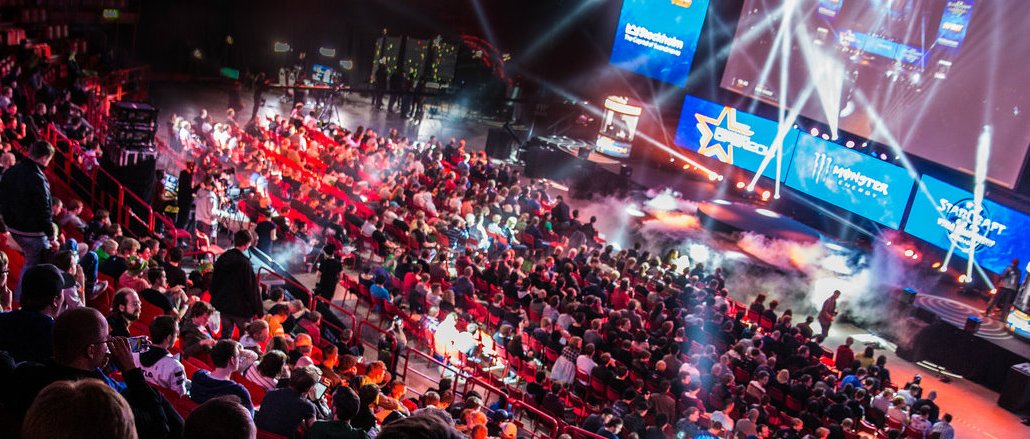Last chance to save on Digiday Publishing Summit passes is February 9

This past week, Spanish football club Valencia CF announced a new team, not of footballers but of video gamers.
Competitive gaming is fast becoming a legitimate sport, with star players, huge winnings and audiences in the millions. The 2015 finals for the gaming title League of Legends, for instance, brought in more viewers than the NBA (36 million vs. 19.9 million).
The numbers are becoming irresistible to brands, which are drawn to the sport’s highly engaged millennial fans. Newzoo estimates brand sponsorships for all eSports will reach $128.2 million (£88.4 million) this year, while online advertising on eSports video content will grow to $197 million (£137.4 million). That’s a 49 percent increase over 2015 for both combined.
The interest from brands has been so great this year that talent agency WME IMG recently hired two more salespeople to service the accounts. “Of the top 10 advertisers globally, every single one is interested in the sport,” said Tobias Sherman, global head of eSports there. “2017 is going to be the big year for non-endemics coming in.”
Almost half of the global eSports audience is aged between 18 and 34, a demographic full of ad-blockers that are increasingly hard to reach via other channels. For brands moving more budget into digital, it’s too good an opportunity to miss.
“It’s a strong statement to make when you hit that younger audience, and also there’s the commercial advantage of getting in early at a good price,” said Joel Seymour-Hyde, vp of strategy for sports sponsorship agency Octagon.
Unlike traditional sports, the lines between those putting on, managing and broadcasting eSports events can be blurred. For brands, it’s not as simple as contacting a player’s agent or a league’s management. They have to negotiate a complex rights package with multiple stakeholders, many of whom have more than one function.
But one advantage of eSports being so young is that brands can get more bang for their buck. They can carve out their own deals and, importantly, haggle.
The cost of reaching an eSports fan is one-eighth the cost of reaching a mainstream sports fan, said Christian Baker, digital manager at Synergy, another sports sponsorship agency, which is working on a number of eSports deals that will be announced later this year. “There is a huge opportunity here for brands,” he said.
But cheap doesn’t equal easy. Those with little experience of the industry are prone to get it wrong — which is why some brands are holding back. While Coke’s meme-heavy eSports Twitter account is thriving with 348,000 followers, Comcast’s sponsorship of eSports company ESL was seen by some as an attempt to slap its name on something with no regard for brand relevancy.
So uh, is @ESL trolling with a @comcast partnership? I get wanting to partner w/ big players but the most hated company worldwide seems odd.
— Radio Esports Guy (@KevinKnocke) June 2, 2016
“It’s a world where users can hide behind avatars. There’s a danger of being trolled if you’re not adding value or seen to be part of the community,” Baker said.
It’s not just brands being trolled. Scrolling through Twitch’s larger competitive streams, it’s not hard to find abuse such as ethnic or sexist slurs. And it’s not limited to the comments section. There’s also salty language coming from players and commentators themselves.
The industry is working to address this. The likes of WME IMG are trying to make players act more like role models, while Twitch is giving users more ways to moderate and report harassment.
For brands that require editorial control, this remains a deal-breaker. But for others, it’s a reality of the online experience they’ve come to accept.
“Cynically, I think the potential reward pot for being involved now has now gone over the tipping point where brands can go, ‘Hey, we know there are issues, and those issues are important ones, but we’re going to get involved and try to help you solve them,’” Baker said.
More in Marketing

Star power, AI jabs and Free Bird: Digiday’s guide to what was in and out at the Super Bowl
This year’s Big Game saw established brands lean heavily on star power, patriotic iconography and the occasional needle drop.

In Q1, marketers pivot to spending backed by AI and measurement
Q1 budget shifts reflect marketers’ growing focus on data, AI, measurement and where branding actually pays off.

GLP-1 draws pharma advertisers to double down on the Super Bowl
Could this be the last year Novo Nordisk, Boehringer Ingelheim, Hims & Hers, Novartis, Ro, and Lilly all run spots during the Big Game?





